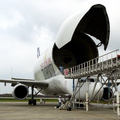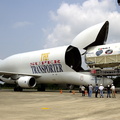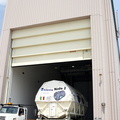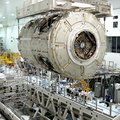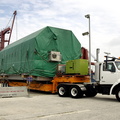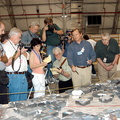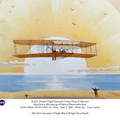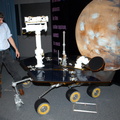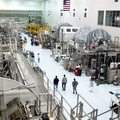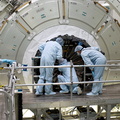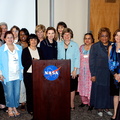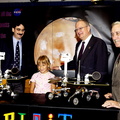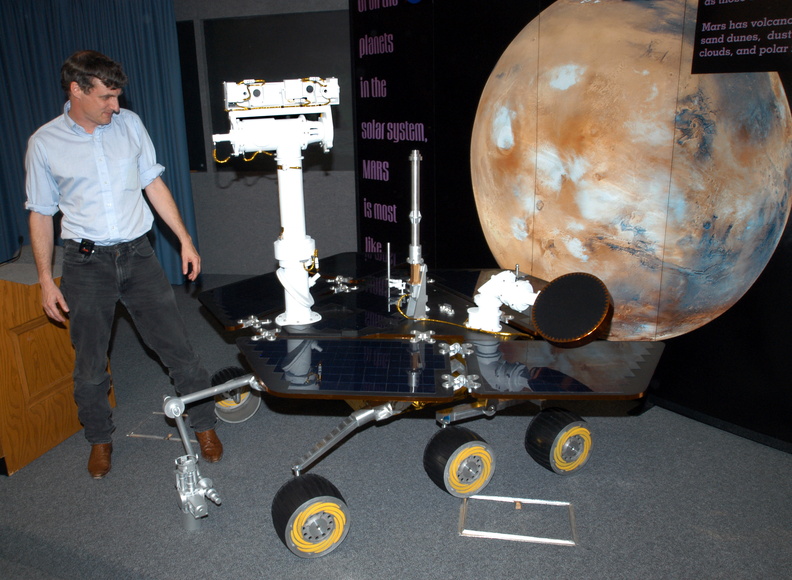
WIKIARCHIVES.SPACE
The Human Spaceflight Archive

Information
- Taken in
- Kennedy Space Center
- Author
- NASA
- Description
- Dr. Steve Squyres, of Cornell Univeristy, Ithaca, N.Y., principal investigator for the Mars Exploration Rover (MER) suite of science instruments, uses a model of a Mars rover to illustrate a point during a science briefing for the media. NASA's twin Mars Exploration Rovers are designed to study the history of water on Mars. These robotic geologists are equipped with a robotic arm, a drilling tool, three spectrometers, and four pairs of cameras that allow them to have a human-like, 3D view of the terrain. Each rover could travel as far as 100 meters in one day to act as Mars scientists' eyes and hands, exploring an environment where humans are not yet able to go. MER-A is scheduled to launch on June 8 at 2:06 p.m. EDT, with two launch opportunities each day during a launch period that closes on June 24.
- Created on
- Friday 6 June 2003
- Albums
-
US SPACE PROGRAM / PROBES / MARS / MARS EXPLORATION ROVERS / OPPORTUNITY / Rocket preparation
US SPACE PROGRAM / PROBES / MARS / MARS EXPLORATION ROVERS / SPIRIT / Rocket preparation
- Source link
- https://science.ksc.nasa.gov/gallery/photos/2003/
- Visits
- 187
- Rating score
- no rate
- Rate this photo
- License
- CC BY-NC-ND
- Modified by WikiArchives
- No (original)
- Downloads
- 15
Powered by Piwigo

